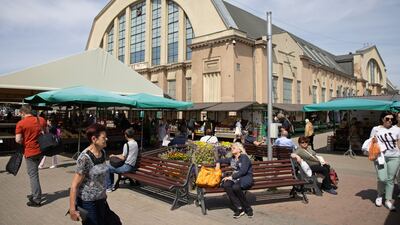Latvia is ready to start selling off stakes in state-owned companies as soon as next year as the government seeks to expand its capital markets and accelerate economic growth.
The Baltic nation plans to embark on the first such asset sales in more than two decades to boost its stock market capitalisation to 9 per cent of gross domestic product by 2027.
Data on the status of companies should be collated by the middle of August, with a clearer timetable for the next moves ready by the end of the year, according to Finance Minister Arvils Aseradens.
“The fact is our capital market is very small, it is practically non-existent,” Mr Aseradens said in an interview in Riga. “We are not even a frontier market.”
In May, the Finance Ministry unveiled a road map, highlighting how at 3 per cent of GDP in 2021, the Baltic nation’s market capitalisation was dwarfed by a European Union average of 54 per cent. Neighbouring countries Estonia and Lithuania were at 17.4 per cent and 9.3 per cent respectively.
The authorities in the nation of about 1.8 million plan to set up a special fund to help private companies that want to raise financing, while expanding the capital markets will give local pension funds and retail clients a place to invest as well as attracting foreign buyers, Mr Aseradens said.

Air Baltic Corp has said it plans an initial public offering by the end of 2024 and the country’s gas storage company is also considering selling a stake. Even state-owned electricity company Latvenergo could be partially listed, depending on the results of a legal audit, since its privatisation is forbidden by law.
“In our opinion, it is not a privatisation, it is a partial listing on the stock exchange,” Mr Aseradens said.
The Finance Ministry last month upgraded its forecast for the economy to grow 1 per cent this year compared with a previous flatline projection. However, Latvia has lagged behind its Baltic neighbours in closing the gap with the EU average on a gross-domestic-product, per-capita basis.
A discussion of immigration has long been taboo in Latvia, but that may be finally changing. Resolving a lack of labour may potentially add 0.8 per cent to GDP, according to the minister.
Measures under discussion include targeted immigration, as well as upgrading the university system to attract more foreign students and staff, Mr Aseradens said. Military sector and IT exports must also be developed, he said.
“We are not happy that we lag behind the other Baltic states in terms of economic growth,” Mr Aseradens said. “The government asked us to change this situation and we came out with this idea.”

